Senior Visual Health Essentials: Your Complete Guide
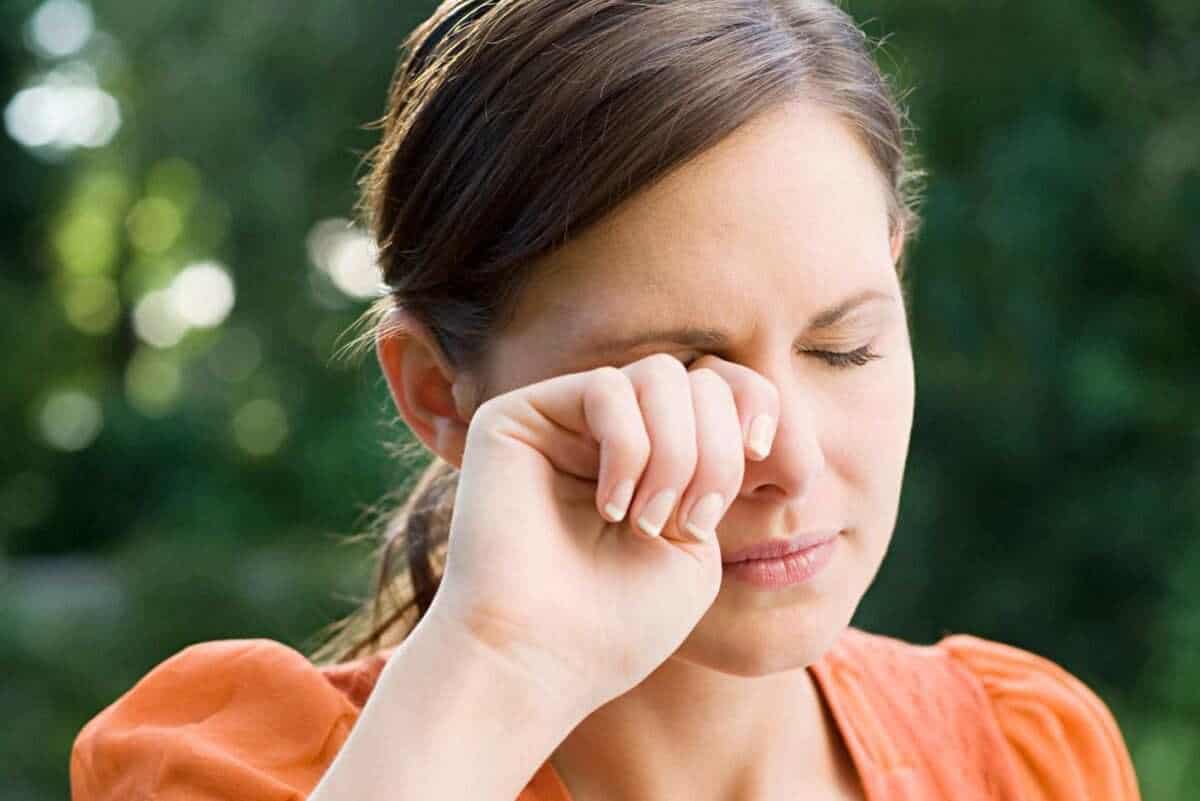
Our body undergoes various changes, and our eyesight is no exception. Our eyes are one of the most important organs of our body that help us navigate and experience the world around us.
Therefore, it’s crucial to take care of our visual health, especially as we grow older. In this blog post, we will cover everything you need to know about senior visual health essentials.
From understanding common vision disorders that affect the elderly to natural ways to improve eye health, we’ve got you covered.
We’ll also talk about lifestyle changes that can positively impact eye health and how often seniors should get their eyes checked.
So, if you want to ensure your loved ones’ visual well-being or want to learn more about taking care of your eyesight, keep reading!
Why is Visual Health Important?
Maintaining good visual health is crucial for a better quality of life. It allows seniors to maintain their independence in daily activities and promotes overall well-being and mental health.

Clear vision is essential for safe mobility and preventing accidents. Regular eye care ensures early detection of vision problems, leading to timely treatment.
What are 4 Vision Disorders in the Elderly?
The 4 most common vision disorders for seniors are age-related macular degeneration (AMD), cataracts, glaucoma, and diabetic retinopathy.
AMD is the leading cause of vision loss in seniors. The deterioration of the macula characterizes this.
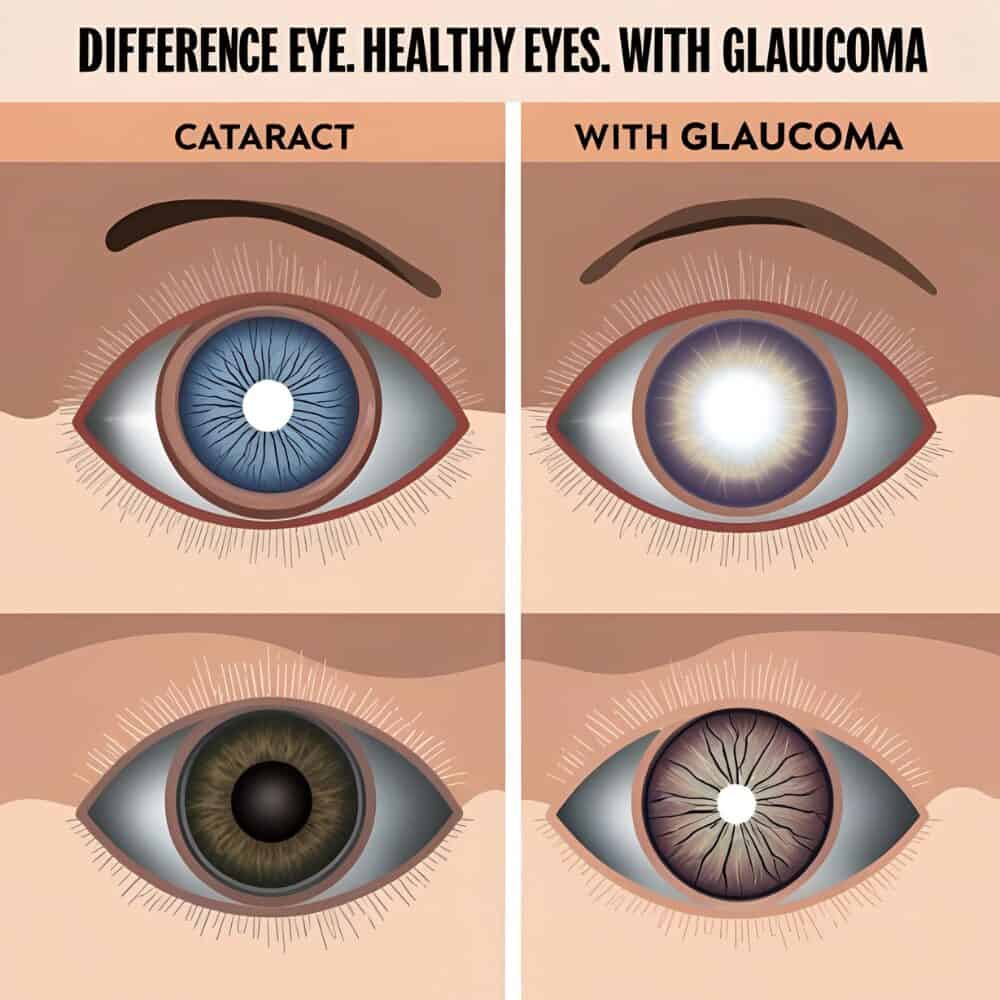
Cataracts cause blurry vision due to lens clouding, while glaucoma damages the optic nerve and leads to peripheral vision loss.
Diabetic retinopathy affects blood vessels in the retina, causing vision impairment.
Presbyopia and its Impact on Vision
As we age, a natural process called Presbyopia sets in, typically starting around the age of 40. It entails a gradual loss of the eye’s ability to focus on nearby objects, prompting the need to extend our arm when viewing the time on the wristwatch or reading materials for clear visibility.
Aging can lead to natural changes in the lens of the eye, resulting in reduced visual acuity and contrast sensitivity for older adults.
With advancing age, age-related eye conditions become more prevalent, putting seniors at a higher risk of vision problems. Additionally, the tear glands may also undergo age-related changes, leading to dry eyes.
These age-related vision changes can have a significant impact on the overall health and well-being of older individuals.
Importance of Regular Eye Check-Ups
Regular eye check-ups play a vital role in maintaining optimal vision and overall eye health. These check-ups help to detect any potential vision problems early on, allowing for timely intervention and treatment. Whether it’s monitoring eye health or detecting diseases, routine eye exams are essential.
Regular check-ups also ensure that your vision correction, such as reading glasses or contact lenses, is up to date, providing you with clear and comfortable vision.

Additionally, these appointments allow you to discuss any concerns or symptoms with your eye doctor, who can provide expert guidance and advice tailored to your specific needs.
By prioritizing regular eye exams, you can prevent serious vision loss and maintain healthy eyes for a lifetime.
What is Normal Eye Pressure for Seniors?
Normal eye pressure for seniors typically ranges from 10 to 21 mmHg. Monitoring eye pressure is crucial as elevated levels may indicate glaucoma.
Routine eye exams should include measurement of eye pressure to detect and manage glaucoma effectively. Regular evaluations help ensure comprehensive visual health.
Dealing with Common Eye Problems in Seniors
Age-related Macular Degeneration (AMD) is a prevalent cause of vision loss in seniors, while cataracts commonly develop with age and affect vision.
Regular eye exams are crucial for early detection of eye problems in seniors. Managing underlying health conditions can significantly reduce the risk of eye issues.
Additionally, practising good eye hygiene can alleviate common eye problems. It’s important to note that AMD is a leading cause of blindness, and detecting it in the early stages is vital for timely intervention.

Seniors should also be aware of the risk factors for eye problems such as high blood pressure and should regularly consult their primary care doctor or healthcare provider.
By taking care of their overall health and seeking appropriate eye care, seniors can minimize the risk of permanent vision loss and maintain good vision well into their golden years. You can also use monitoring aids to always check their vital signs such as blood sugar and blood pressure levels.
Understanding Age-related Macular Degeneration (AMD)
Age-related Macular Degeneration (AMD) is a condition that primarily affects the central part of the visual field. Seniors need to undergo regular eye exams to detect AMD at an early stage.
In some cases, nutritional supplements can slow down the progression of AMD. Another key factor in reducing the risk of developing AMD is quitting smoking.
Managing blood pressure and cholesterol levels also plays a significant role in lowering the risk of AMD.
By taking these measures, seniors can take proactive steps towards preserving their vision health and reducing the likelihood of permanent vision loss caused by advanced stages of AMD.
Coping with Cataracts in Old Age
Clouded vision caused by cataracts can be a common concern for seniors. Thankfully, surgical procedures are available to treat this condition.
Regular eye exams play a crucial role in monitoring the progression of cataracts and identifying the appropriate time for surgery.
Additionally, taking preventive measures such as wearing sunglasses and hats can help reduce the risk of developing cataracts.
Avoiding smoking and excessive alcohol consumption are also beneficial in lowering the chances of cataract formation. Adequate lighting and visual aids can improve vision for individuals with cataracts.
By incorporating these strategies and seeking guidance from a healthcare provider, seniors can effectively cope with cataracts and maintain good vision health.
Natural Ways to Improve Senior Eye Health
Eating a nutrient-rich diet is crucial for promoting good vision and overall health. Regular physical activity also enhances eye health by improving blood circulation and reducing the risk of high blood pressure, a leading cause of blindness.
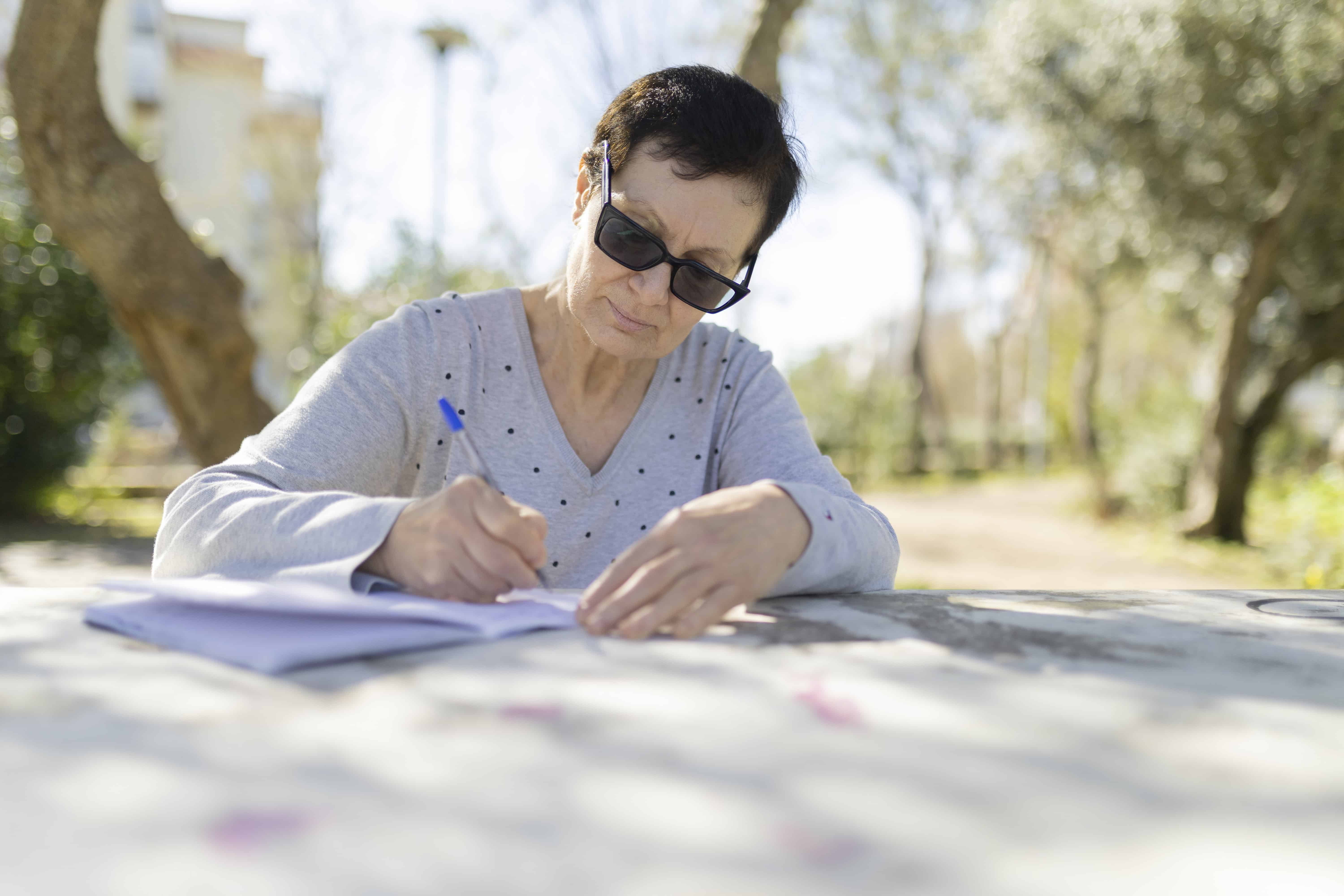
Protecting the eyes from harmful UV radiation is essential to prevent the early stages of cataracts and other vision disorders.
Quitting smoking is another important step in improving vision, as it reduces the risk of developing conditions like AMD and dry eye syndrome.
Practicing good eye hygiene, such as washing hands before touching the eyes and avoiding rubbing them, can help reduce the risk of infections.
By following these natural ways, seniors can improve their eye health and maintain good vision for a long time.
Adopting a Nutrient-Rich Diet for Better Vision
When it comes to maintaining good vision, adopting a nutrient-rich diet plays a crucial role. Consuming green leafy vegetables, such as spinach and kale, supports eye health by providing essential vitamins and minerals.
Including essentials for good vision, like vitamin A and vitamin C-rich foods (oranges and strawberries) in your diet benefits vision by reducing the risk of age-related macular degeneration (AMD).
Similarly, eating foods high in vitamin E, such as almonds and sunflower seeds, promotes good eye health and protects against oxidative stress.
Antioxidants found in fruits and vegetables help protect the eyes from free radicals and reduce the risk of eye diseases. Additionally, consuming omega-3 fatty acids, found in oily fish like salmon and mackerel, helps maintain healthy eyes.

By incorporating these nutrient-rich foods into your diet, you can enhance your overall health and reduce the risk of vision-related issues.
The Role of Physical Activity in Enhancing Eye Health
Regular exercise plays a crucial role in enhancing eye health. By improving blood flow to the eyes, physical activity ensures that the eyes receive enough oxygen and nutrients to function optimally.
Additionally, engaging in regular exercise can help reduce the risk of age-related eye conditions, such as macular degeneration and cataracts.

Exercise also helps maintain healthy blood vessels in the eyes, preventing conditions like diabetic retinopathy.
Moreover, staying active can delay the progression of certain eye diseases, allowing individuals to retain their vision for longer. Low-impact activities like walking are particularly beneficial for eye health.
Incorporating physical activity into a daily routine is an essential part of maintaining good vision and overall health in seniors.
Importance of Protecting Eyes from Harmful UV Radiation
Protecting your eyes from harmful UV radiation is crucial for maintaining good vision health. Wearing reading glasses and sunglasses with UV protection is an effective way to shield your eyes from damage caused by the sun’s rays.
Additionally, wearing a hat or visor can provide added protection against UV radiation. It is also important to limit your sun exposure during peak UV hours, typically between 10 a.m. and 4 p.m., to safeguard your eye health.
Applying sunscreen around the eyes is another preventive measure to prevent sunburn and potential eye damage.
When engaging in outdoor activities, make sure to wear protective eyewear to protect your eyes from any potential hazards.
By taking these steps, you can reduce the risk of eye damage and promote overall eye health.
Can Supplements Boost Eye Health in Seniors?
Supplements can play a role in boosting eye health for seniors. Lutein and Zeaxanthin supplements support overall eye health, while Omega-3 fatty acid supplements may reduce the risk of certain eye conditions.
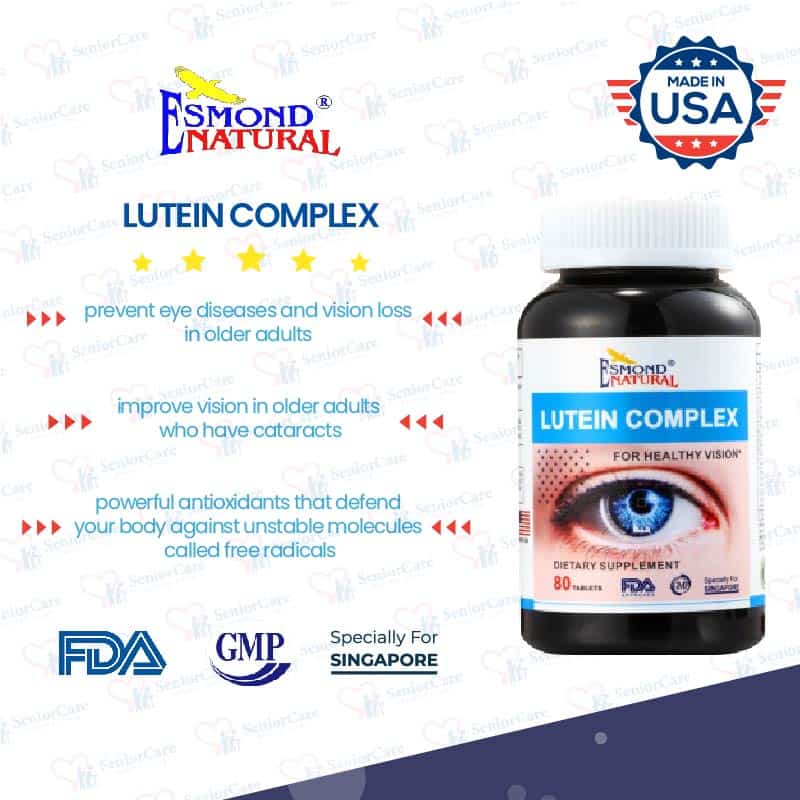
It’s important to consult a healthcare professional before starting any eye health supplements, as a balanced diet should be the primary source of essential nutrients for maintaining good vision.
The Benefits of Lutein, Zeaxanthin, and Omega-3 Fatty Acids
Promoting healthy vision and protecting against eye diseases, Lutein and Zeaxanthin are essential nutrients that play a crucial role in maintaining visual health.
These antioxidants help filter harmful blue light and reduce the risk of age-related macular degeneration (AMD) and cataracts.

Omega-3 fatty acids also contribute to proper eye functioning by supporting tear production and reducing inflammation.
They have been linked to a decreased risk of dry eye syndrome and improving overall eye health.
Lutein and Zeaxanthin can be found in green leafy vegetables like spinach and kale, as well as in eggs. On the other hand, sources of omega-3 fatty acids include fish oil from oily fish and flaxseeds.
By incorporating these nutrients into your diet, you can help maintain macular health and protect your vision for the long term.
Lifestyle Changes for Better Eye Health
Making lifestyle changes is crucial for maintaining optimal eye health as we age. Regular eye exams play a vital role in identifying any vision issues and ensuring early detection of eye diseases or conditions.
Practising proper eye hygiene, such as washing hands before touching the eyes and avoiding sharing makeup or eye drops, can help prevent eye infections.
Managing chronic health conditions like high blood pressure and diabetes is also important, as these conditions can increase the risk of eye problems.

Taking breaks from screen time and practising the 20-20-20 rule (looking at something 20 feet away for 20 seconds every 20 minutes) can alleviate digital eye strain.
Additionally, avoiding smoking and excessive alcohol consumption can promote better eye health by reducing the risk of developing eye diseases.
By incorporating these lifestyle changes into our daily routine, we can take proactive steps to protect our vision and overall health.
Why is it Important to Quit Smoking for Eye Health?
Quitting smoking is crucial for maintaining good eye health. Smoking increases the risk of age-related macular degeneration and damages the optic nerve, leading to vision loss. It also irritates the eyes, causing dryness and discomfort.
Quitting smoking improves blood circulation to the eyes and reduces the risk of cataracts.
How Often Should Seniors Get Their Eyes Checked?
Regular eye check-ups are essential for seniors to maintain optimal eye health. It is recommended that seniors have an eye exam at least once a year.
These exams can detect early signs of eye diseases and monitor changes in visual acuity. Frequent eye exams are crucial for managing existing eye conditions
How can I Help My Elderly with Vision Problems?
Assist your elderly loved ones with vision problems by ensuring well-lit living spaces for better visibility. Encourage regular exercise to promote good blood circulation to the eyes.
Help them schedule and arrange transportation for regular eye check-ups. Support them with organizing medications and reminders for eye treatments. Provide understanding when they face challenges due to vision issues. Also, provide them with tools or devices for example Mobilux Led Hand Held Magnifier 10x if they want to read something or magnify nail clippers to encourage independence.
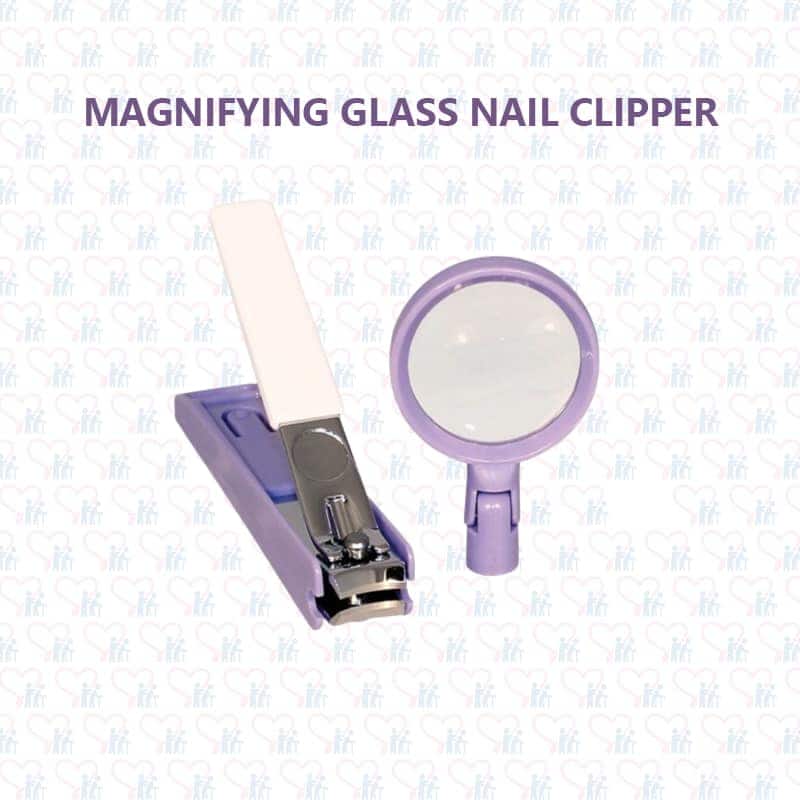
How Do You Take Care of an Elderly Blind Person?
Taking care of an elderly blind person requires creating a clutter-free and organized living environment. Assistive technologies like screen readers can help them navigate digital devices.
Emotional support and encouraging independence are crucial. Assisting with daily tasks and encouraging participation in support groups or rehab programs also helps.
How to Make Life Easier and Safer for Seniors with Low Vision?
In conclusion, it is important to prioritize visual health as we age. Regular eye check-ups, adopting a nutrient-rich diet, protecting eyes from harmful UV radiation, and quitting smoking are all essential for maintaining good eye health.
Additionally, understanding common vision disorders such as age-related macular degeneration (AMD) and cataracts can help seniors identify symptoms and seek timely treatment.
Supplements like lutein, zeaxanthin, and omega-3 fatty acids can also provide added support. Lastly, making necessary lifestyle changes and taking care of the elderly with vision problems can significantly improve their quality of life.
To make life easier and safer for seniors with low vision, consider using contrasting colours for home decor and labels. Install handrails and grab bars in key areas to prevent falls.
Provide magnifying tools or devices to aid reading and writing. Organize belongings and create a consistent layout for familiarity. Offer transportation assistance and accompany them to unfamiliar places.
By implementing these tips and tricks, seniors can enjoy better eye health and maintain their independence for longer.


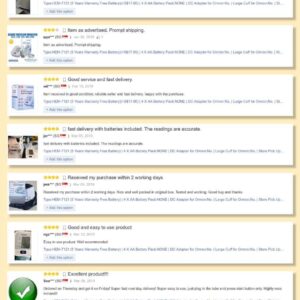
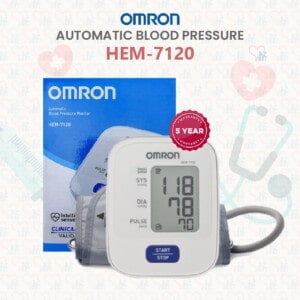



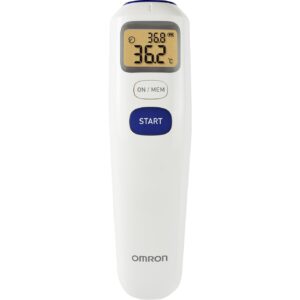

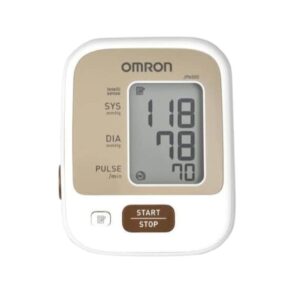
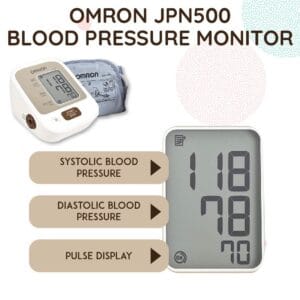

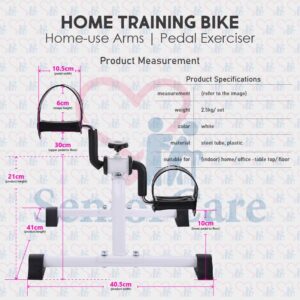



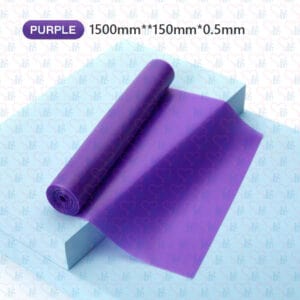

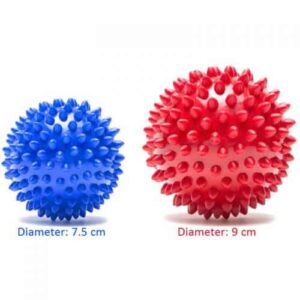



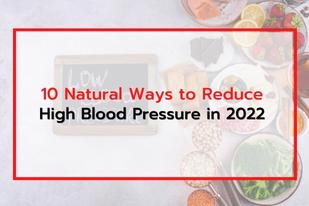

 Nestle Resource 2.0 Milk Liquid 200ml Carton of 24 - Vanilla
Nestle Resource 2.0 Milk Liquid 200ml Carton of 24 - Vanilla